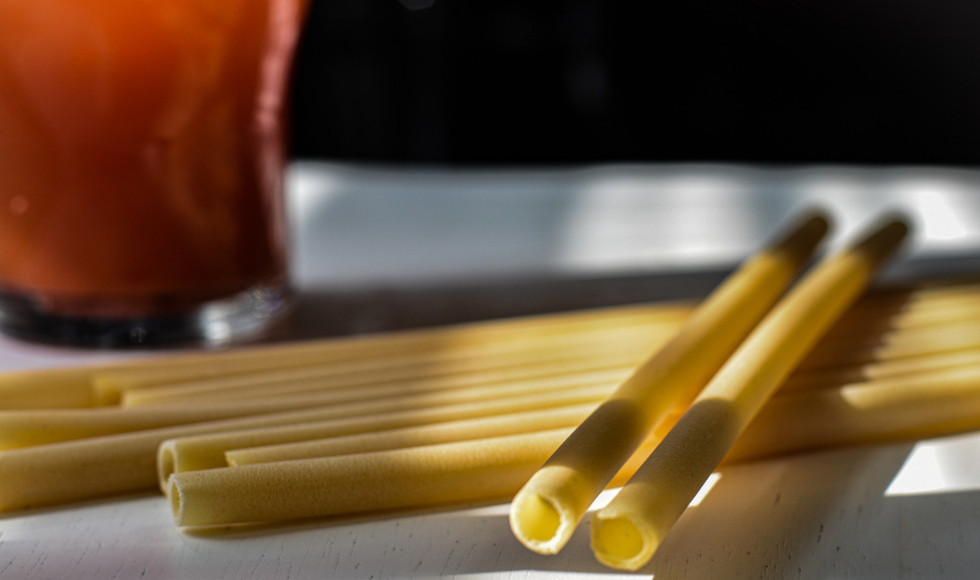From pasta straws to green roofs: Students present ideas for a more sustainable campus

As part of an Intersession course, undergraduate students present their ideas to address United Nations’ Sustainable Development Goals (SDGs) on McMaster's campus.
Pasta straws, more bicycle self-repair stations, a community fridge, more green roofs and clothing donation of formal business wear for students.
These are just some of the ideas that McMaster undergraduate students from an Interdisciplinary Minor in Sustainability course presented to university leaders as ways to address the United Nations’ Sustainable Development Goals (SDGs) on campus.Undergraduate students in the course called Exploring the United Nations’ SDGs tackled complex issues of sustainability through simulations, debates and games. Led by John Boakye-Danquah, an esteemed environmental researcher and post-doctoral fellow with the Canadian Institute of Forestry, the course culminated in a presentation to university operational leaders focusing on one SDG per student team and sharing potential solutions to address the SDGs on McMaster’s campus.
The six student groups presented ideas that identified opportunities for new projects like a community fridge to improve food security, using pasta straws instead of paper to reduce waste, installing bicycle self-repair stations to promote green transportation, and providing substance abuse support for students online. Other ideas encouraged the university to join an innovative initiative recycling masks, to seek newer building certification that take a holistic approach to wellbeing, and to expand the number of green roofs on top of campus buildings.
Leaders from Facility Services, Hospitality Services, Natural Lands and Outdoor Recreation, and University Advancement listened to the ideas, asking each group thought-provoking questions and providing feedback on operationalizing the ideas.
“The feedback from leaders was invaluable, and I learned so much about sustainable initiatives at McMaster. Being in first year, I had not yet had the opportunity to see first-hand the ways in which McMaster promotes sustainability, so this was a great experience for me,” says Chloe Orme, undergraduate student.
McMaster’s Academic Sustainability Programs (ASP) Office has a history of providing students opportunities to learn while collaborating with McMaster’s operational departments. Examples of successful collaborations on campus include an initiative called Trash to Treasure, where computers are refurbished and donated to children in need, a project relabelling disposal bins with clear signage and a project promoting pollinators that helped McMaster receive a Bee City Campus designation.
“These opportunities are a powerful example of the interdisciplinary nature within the sustainability program, and of the culture of collaboration engrained in McMaster’s teaching and learning community,” says Giancarlo Da-Ré, former McMaster Student Union president and one the panelists providing feedback, now representing the Office of Sustainability.
As another academic semester closes, the students who participated in this unique experiential learning opportunity can be proud that their interdisciplinary and innovative ideas resonated with McMaster leaders, and also support McMaster’s commitment to address SDGs on campus.
“McMaster is engaging our student community to transform our campus into a living laboratory for sustainability,” says Debbie Martin, assistant vice-president and chief facilities officer. “In the ideas that the students presented related to infrastructure, waste management and transportation were seeds for more collaborations between Facility Services and students to help strengthen environmental sustainability on campus.”


